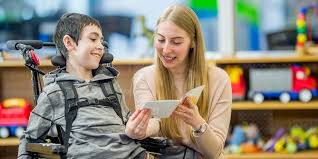School is where children build core academic knowledge, but much of what shapes their character, confidence, and adaptability happens outside the classroom. Whether it’s through play, sports, community involvement, or even structured cultural activities such as Islamic education for students, children gain a wealth of skills that aren’t measured on a report card. These hidden skills help prepare them for real-world challenges and often stay with them long after the details of school lessons fade.
Communication and Social Skills
Outside the classroom, children naturally experiment with how they express themselves. Through playdates, sports teams, or even casual conversations, they learn to listen, negotiate, and resolve conflicts. These everyday moments teach:
- Active listening: Paying attention to others’ ideas.
- Empathy: Understanding different perspectives.
- Teamwork: Recognising when to lead and when to follow.
Strong communication doesn’t just make children better friends; it equips them to succeed in future workplaces and communities.
Creativity and Problem-Solving
Unstructured play and hobbies encourage imagination. Building a fort from cushions or inventing a new game requires resourcefulness and critical thinking. These problem-solving opportunities:
- Show children that challenges can be fun.
- Build persistence by rewarding trial and error.
- Encourage flexibility when plans don’t work out.
When nurtured, creativity helps children see possibility where others see limitation.
Emotional Regulation and Resilience
Life outside the classroom brings plenty of small setbacks — a lost game, an argument with a friend, or a project that doesn’t go as planned. These moments teach resilience. Parents and caregivers can support by:
- Validating feelings instead of dismissing them.
- Modelling calm responses under stress.
- Encouraging reflection on what went well and what could be different next time.
Over time, children learn to manage disappointment and bounce back more quickly.
Responsibility and Independence
When children take on tasks at home or in the community, they develop accountability. Chores, volunteering, or managing their own pocket money encourage independence. These opportunities:
- Build confidence in their ability to handle responsibility.
- Teach time management and prioritisation.
- Provide a safe environment to make small mistakes and learn from them.
Responsibility outside the classroom helps children understand that their actions affect both themselves and others.
Cultural Awareness and Values
Participation in cultural or community activities exposes children to broader values and traditions. Whether through faith-based learning, community service, or exposure to different customs, they gain perspective that shapes their identity. This kind of learning teaches respect, inclusivity, and an appreciation for diversity — skills that are invaluable in today’s interconnected world.
How Parents Can Encourage These Hidden Skills
Parents and caregivers don’t need elaborate plans to nurture growth outside the classroom. Everyday habits are often enough:
- Provide time for unstructured play.
- Encourage participation in team or community activities.
- Give children age-appropriate responsibilities at home.
- Celebrate effort, not just achievement.
- Expose them to different perspectives and cultural experiences.
These small steps help children practise the skills that will carry them through life.
Bringing It All Together
The classroom teaches children how to read, write, and calculate, but life outside school is where they practise being adaptable, creative, and compassionate. By giving children the freedom to explore and the guidance to reflect, parents and caregivers help them develop hidden skills that shape not only their future success but also the kind of people they become.
